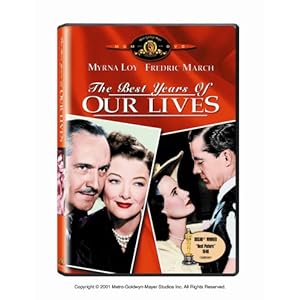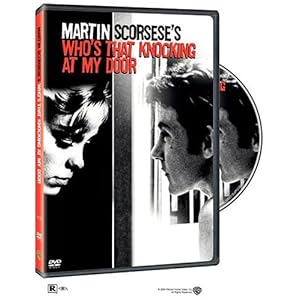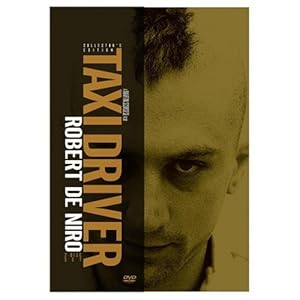Martin Scorsese is one of the best directors who ever lived, and I think that Christopher Nolan is on his way to earning that distinction. In the last week I've watched the few remaining movies by both of them available for streaming on Netflix.
The Age of Innocence

Love stories are often passionate, but few let that passion boil just under the surface as much as it does in The Age of Innocence. Daniel Day-Lewis plays a lawyer from a wealthy family in 1870s New York City (only a few years after the chaos and violence depicted in Scorsese's other film Gangs of New York) who becomes engaged to a woman played by Winona Ryder, but when her cousin played by Michelle Pfeiffer returns from Europe, he realizes how much stronger his feelings are for her instead. Wealthy families always want to avoid scandal though, and Pfeiffer is already damaged goods since she's considering divorce from her powerful husband, and they struggle with whether to take a chance or avoid causing a stir. Innocence is a well made movie with really good lead performances, but because it's so wrapped up in that distant old wealthy people mode, I didn't really find it gripping for most of its duration. A good movie, but I didn't find myself very invested.
Boxcar Bertha

Boxcar Bertha was Scorsese's first film that wasn't connected to his student projects, and it took a while for me to figure out what was off about it. Eventually though, it hit me - it's an exploitation movie. Not a terrible one, and it's one based on unusual concepts for that sort of thing, but it's still an exploitation movie. It uses issues like labor unions and race relations to make a movie about a girl who gets naked sometimes and robs banks and shoots people with her partners. It's sort of a second-rate Bonnie and Clyde with worse acting. I don't want to be too harsh on the movie, because it does some interesting things that most B movies you'd compare it too wouldn't. But it still never reaches very high, so even its solid execution results in a movie that's decent at best.
Following

Following is Nolan's first film, shot independently in black and white on a very small budget. It concerns an unemployed aspiring writer who decided to start following random people to learn about them and get inspired. Eventually he repeatedly follows the wrong guy, and gets pulled into a world of small-time burglary and betrayal. Much like his next film Memento, Following has a complex plot that is further complicated by the script's non-linear approach to structure. It jumps back and forth between time periods, always revealing things that end up clarifying or contradicting what came before. The actual truth behind what's going on when it's finally revealed can be looked at in two ways. On one hand, it's really kind of an absurdly complicated scheme to resolve what wasn't that difficult of an issue, and it's sort of unlikely that the whole thing would come together correctly. But on the other hand, it's still a really fun mystery to unravel, and the fun of noir movies is always that moment of realization when it all finally makes sense. It's a really good first effort.
Insomnia

Insomnia is the only film Nolan's directed that wasn't based on his own screenplay, and it shows a bit. He was proving to studios that he could handle a larger budget and more recognizable cast, and he does a good job of that, though the movie underneath is merely solid and definitely the least interesting thing that he's done. It's pretty much a boilerplate detective story with a plot that wouldn't be out of place in a random episode of most cop shows, but there are a few things that make it work. The first act twist that provides Al Pacino's Detective Dormer with an internal conflict does a good job of complicating an otherwise standard plot, and the ensuing insomnia that plagues him adds a lot of flavor to the whole movie. The acting by him and Robin Williams is good, and it's a really well-shot film, particularly in a few really tense sequences that are unlike what you'd usually see in this type of story. Hilary Swank's character seemed really badly written, and there are a few other hiccups, but mostly it's an above average Hollywood mystery/thriller. Nolan's best asset is probably his screenwriting, but I think with Insomnia he shows it's not the only thing he can do.
The Last Temptation of Christ

Based on a book besides The Bible, The Last Temptation of Christ tells the story of Jesus Christ in a very different way than we're used to. Willem Dafoe's Jesus is tormented by his knowledge and his communications with God, and he is a much weaker man than he is ever depicted as being in the New Testament. The movie hits a lot of the expected notes from the few years that he worked as a prophet, from his wandering in the desert to his sermon on the mount to turning water into wine to the healing of the sick and of course, his arrest and crucifixion. But it shows these moments in different ways than we're used to, and considering these stories in a different light, seeing them as the actions of a man with weaknesses and desires that he must sacrifice rather than an all-knowing and serene son of God is very interesting. The most memorable and controversial sequence comes near the end, when we see Jesus as a man who raised his own family rather than one who died for our sins, but the resolution of this sequence, when everything finally comes together, is extremely powerful, and strikes me as something that would restore faith rather than challenge it. Definitely one of the best religious movies I've ever seen.
Sunday, December 18, 2011
Movie Update 32: Nolan and Scorsese
Monday, June 27, 2011
Movie Update 9
A couple William Wyler classics and a couple by favorite directors.
Ben-Hur

This was pretty damn good for what is essentially Bible fan fiction, and I liked it more than I expected. Ben-Hur is pretty much the definition of an epic, lasting well over three hours even without its extended overture and intermission, and telling the story of a man whose life has parallels to and intersects with that of Jesus. He butts heads with Rome, he spends years rowing on a galley, and he becomes a successful chariot racer. I'm not sure how I felt about the religious stuff, but it's generally secondary to the film itself, which moves along well despite the length and has a few really good scenes. The chariot race in particular is outstanding. There are obvious moments where the motion is sped up, but it's still a thrilling sequence over fifty years later.
The Best Years of Our Lives

Another Best Picture winner directed by William Wyler. The Best Years of Our Lives is sort of the quintessential inspirational movie. It was made very shortly after World War II, and shows the return of three soldiers to a town in central America; one missing his hands and worried how his family and high school sweetheart will take his new hook prostheses, one concerned that he won't be able to support his wife with no job to come back to, and one older with two kids who has concerns about his bank is treating GIs. They all go through some foibles before it all works out in the end. The important part is the journey, and there are a lot of good scenes in there, with everything from humor to betrayal and budding romance. It seems pretty honest for the time period, and it's a well-acted film in general.
Mean Streets

Martin Scorsese's first collaboration with Robert De Niro was originally conceived as a sequel to Who's That Knocking at My Door? and there are definite similarities. Harvey Keitel plays a similarly self-conscious street tough who balances hanging out with his criminal friends with a troubled romantic relationship, and there's a familiar sort of aimlessness to it. The film is as much about the experience of being in Little Italy as it is about the simple, flimsy plot, and while that may have worked for some, I found it a bit dull a lot of the time. Scorsese just wasn't quite the virtuoso he'd go on to be yet. Still, there's good bits here and there, particularly De Niro's unhinged performance which helped make his career and the ending, which is trademark Scorsese violence in full effect.
Robin Hood: Men in Tights

You know a director has lost his touch when one of his parodies makes Spaceballs look inspired. I don't want to be too harsh on Men in Tights, but the fact is it's not particularly funny, and on top of that it's fairly unoriginal. Pretty much every joke is either something being referenced that didn't actually exist in the film's time period, or just kind of silly. The musical numbers seem awkwardly stitched in, and the entire romantic subplot is basically exactly the same as the one in Spaceballs. The cast is solid, and about the only thing that keeps the movie decently enjoyable instead of completely boring. Cary Elwes basically plays Westley again as Robin Hood, Dave Chappelle is one of his wacky sidekicks, Richard Lewis plays the mildly villainous Prince John, and Patrick Stewart has a solid cameo. Dom Deluise also does a pretty good Brando in The Godfather impression for no real reason. I don't know, I chucked a fair number of times, but I still recognized the movie has highly lacking compared to most of Brooks' earlier work. I wish he had made more movies back when he still had ideas.
Wednesday, January 19, 2011
Who's That Knocking at My Door

Who's That Knocking is Martin Scorsese's first film, and it has a pretty weird production history which helps explain its disjointed nature. It stars Harvey Keitel as J.R., a simple criminal in New York. He helps run vague operations with his friends, whom he spends a lot of time just screwing around with. This part of the movie was filmed as a student project before Scorsese graduated. Then he came up with the idea for the story of a relationship where the man eventually learns an awful truth about the woman's past, and is unable to cope with it properly. He filmed this and slapped it together with the hanging-with-buddies stuff, and the two plot threads never meet. It was released at festivals as I Call First. Then he got a deal for distribution, on the condition that he had a big sex scene they could use to help sell it. He filmed the scene and added it in, the name was changed, and that's the movie I watched.
If it sounds like it would all add up to a slightly odd and befuddling film experience, it kind of does, although I still liked a lot of the individual scenes and a lot of the way it was all filmed. It has a lot of style that you don't really see from movies back then, with scenes at different points in time being intercut interestingly and some unique and creative choices for angles and stuff like that. It makes the whole story more engaging to watch, even if there's very little in the way of a continuous plot or true character development. The two stories aren't completely shut off from each other, because the scenes with Keitel and his friends hint at something that's bothering him, specifically involving a girl, and it ties the ideas together without them specifically referring to each other. And while the sex scene is definitely unnecessary, Scorsese still found a way to tie it back into an existing scene, and the way it was done, with some of the film's best cinematography and a sort of weird symbolic feel to it, makes it feel less totally superfluous.
And while it might have worked better on its own as a short film or expanded into something more, the stuff with Keitel and Zina Bethune is really pretty strong. Their relationship seems natural, both in how it blossoms into something meaningful and how it falls apart when Keitel reveals the massive flaws and insecurities in his personality. It could have easily been boring or hard to watch, but I mostly liked it, and as his first film, it's a decent showcase of Scorsese's ability to shoot scenes in new and intelligent ways. I only watched it because it was expiring from Netflix Instant, but I don't regret it at all.
Wednesday, December 9, 2009
Taxi Driver

It's sort of hard to articulate my thoughts on Taxi Driver. It's a character study of a man who at first appears relatively normal except for perhaps too strong of a negative opinion regarding the other people in his environment, yet as it goes on he quickly becomes more and more psychotic. He talks about how the streets should be cleaned up, eventually deciding he should be the one to do it. I'm a little unclear on the amount of time the film covers. It doesn't feel too long, but the character undergoes a lot of change and some telling details are sort of skipped over. A lot of the film is just him watching the world around him, though it never gets boring and it's punctuated by moments of grave intensity, including the totally alarming climax which is only hampered slightly by the dated special effects. It's really a movie propelled by Robert De Niro's performance, at different times charming, pathetic, and harrowing, and without which I'm not sure the film succeeds.
His is not the only good performance, with Harvey Keitel making the despicable pimp of an underage girl somehow a bit likable, and Jodie Foster holding her own in an early role as said prostitute. There's some early stuff at a campaign center with Albert Brooks and Cybill Shepherd that doesn't really seem to fit with the rest of the movie but provides a bit of relief from De Niro's ever-deepening dementia, and also provides a glimpse at where his mind is truly headed. It's a good collaboration between director Martin Scorsese and writer Paul Schrader, just one of many, as they somehow make the unusual story work. I'm not sure I agree with every decision Scorsese makes, but most of it succeeds and it seems pretty groundbreaking for 1976. The ending is definitely odd and can work with a couple different interpretations. At first it seemed to come out of nowhere and mesh poorly with what I had seen just before, but in hindsight I think it works better than something closer to what I was expecting. I still feel like there's something just a bit off with the whole thing, but it's certainly a staple of the decade and has me wanting to watch more by both the director and the lead.

































